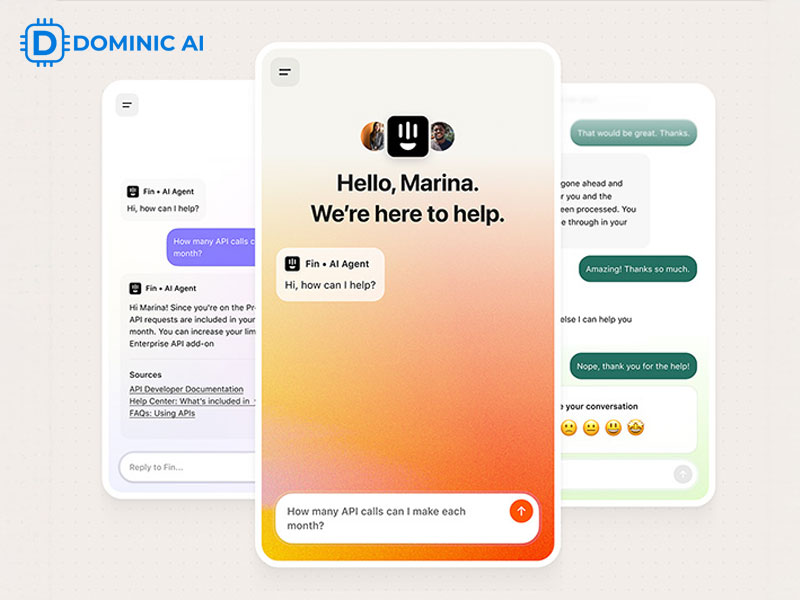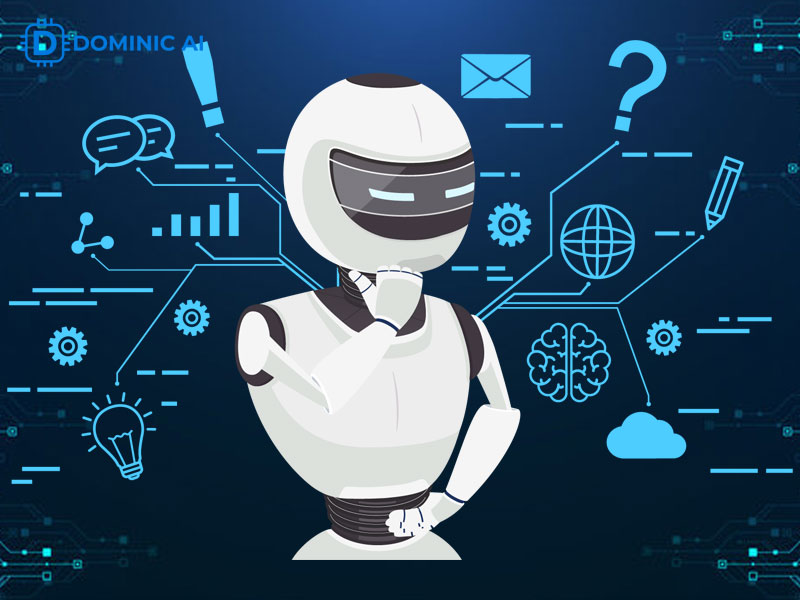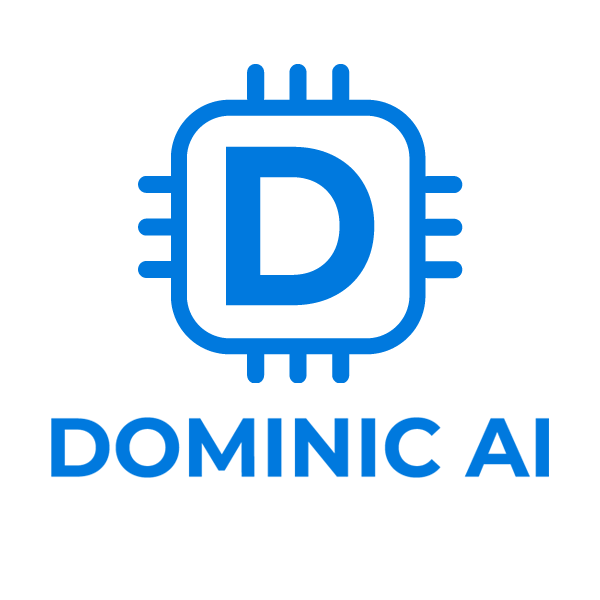CloseBot AI vs Intercom: Which AI tool is best for your business?

When comparing AI-powered customer engagement platforms, CloseBot AI vs Intercom is a common question for businesses seeking the best fit. With insights from Dominic AI Tools, this guide explores the features, pricing, and use cases of both platforms, helping you understand which solution can enhance sales, automate workflows, and elevate customer experiences for your business.
What is CloseBot AI? – A Sales-Focused AI Platform
CloseBot AI emerges as a potent tool explicitly engineered to supercharge lead generation and sales outreach. This platform emphasizes automation and personalization, aiming to connect businesses with potential clients in a scalable and efficient manner. It goes beyond rudimentary chatbot functionality, offering a suite of features designed to act as a virtual sales assistant, handling tasks that would otherwise consume significant time and resources.

CloseBot AI
CloseBot AI’s design philosophy is rooted in addressing the challenges faced by sales teams, particularly in areas like prospecting, initial engagement, and nurturing leads. It’s not merely about generating conversations; it’s about initiating meaningful interactions that can eventually convert into paying customers. Its agility makes it particularly appealing for agencies aiming to streamline sales processes for their clients. The ability to scale outreach while maintaining personalization is the key differentiator, setting it apart from more generalized communication platforms.
Strengths in lead generation, personalized outreach, and agency scalability.
CloseBot AI excels in identifying and engaging potential leads. It leverages AI to sift through data, pinpointing prospects that match specific criteria. Beyond identification, it automates personalized outreach, crafting messages tailored to individual leads’ interests and pain points. This personalized approach significantly boosts response rates and conversion probabilities, surpassing the efficiency of generic mass outreach.
A major advantage of CloseBot AI is its scalability, especially for agencies. The platform allows agencies to manage multiple clients simultaneously, each with its own tailored sales outreach strategy. This centralizes control, streamlines workflow, and enables agencies to deliver consistent, high-quality lead generation services at scale. The per-bot/per-niche pricing model further enhances its appeal to agencies, offering cost-effective scaling based on client requirements.
What is Intercom? – A Customer Support and Engagement Leader
Intercom stands as a prominent player in the realm of customer support and engagement, offering a comprehensive platform designed to facilitate seamless communication between businesses and their customers. Its core functionality revolves around live chat, but it extends far beyond basic chat capabilities, encompassing features such as helpdesk management, proactive messaging, and personalized customer experiences.

Intercom
Intercom’s focus lies squarely on nurturing customer relationships and providing outstanding support. It aims to create a unified platform where customers can easily reach out with questions, receive timely assistance, and engage with the business, building loyalty and advocacy. Its robust suite of tools makes it particularly well-suited for SaaS companies that prioritize in-app support. The ability to handle large volumes of inquiries while maintaining personalization and efficiency empowers businesses to deliver exceptional customer experiences at scale.
Strengths in live chat, helpdesk, customer messaging, and enterprise adoption.
Intercom’s strength fundamentally stems from its robust live chat capabilities. It offers real-time support, allowing customers to connect with agents instantly. This immediacy dramatically improves customer satisfaction, leading to faster resolution times. Integrated helpdesk features streamline support workflows, enabling agents to manage tickets, track issues, and collaborate effectively.
Intercom’s customer messaging capabilities shine as well, facilitating targeted, personalized communication. Businesses can segment their customer base and deliver specific messages and offers based on individual behavior and preferences. This proactive engagement not only enhances customer satisfaction but also helps drive sales and retention. Intercom’s emphasis on robust security features and scalability renders it a favorite with enterprise clients, emphasizing its significance and appeal to big businesses.
CloseBot AI vs Intercom: Feature-by-Feature Comparison
The choice between CloseBot AI and Intercom boils down to business priorities. Where CloseBot AI emphasizes lead generation and sales outreach, Intercom positions itself as a comprehensive customer support and engagement tool. Understanding how their features intersect and where they diverge is critical for decision-making.
Understanding their feature comparison will help you to effectively evaluate your business requirements, and hence make the right choice that improves efficiency.
AI and automation capabilities.
CloseBot AI heavily leverages AI for tasks such as lead identification, personalized messaging, and automated follow-ups. It analyzes data to pinpoint ideal prospects and then crafts tailored messages that resonate with those individual leads. The automation capabilities enable businesses to scale outreach efforts without compromising on personalization, resulting in improvements on conversion rates.
Intercom, while also employing AI, focuses more on customer support applications. Its AI-powered features help route inquiries to the appropriate agents, suggest relevant knowledge base articles, and automate responses to common questions. The emphasis is on streamlining customer service workflows and enhancing the efficiency of support teams.
Sales enablement vs support focus.
CloseBot AI exists mainly to enable sales teams. It provides tools for finding leads, automating outreach, and nurturing prospects into customers. The platform’s features are designed to accelerate the sales cycle and enhance conversion rates. It provides features that boost the sales figures of the business.
Intercom primarily focuses on customer support and engagement. Its features revolve around providing excellent customer service, resolving issues quickly, and building strong customer relationships. Intercom helps businesses deliver exceptional post-sales customer experiences with advanced customer engagement features, boosting the appeal to customers and prospects.
Integrations, reporting, and customization.
CloseBot AI integrates with popular CRM systems, enabling seamless data flow between sales and marketing efforts. This helps streamline customer relations to bring a unified customer view. Its reporting capabilities offer insights into campaign performance, lead engagement, and conversion rates, empowering businesses to refine their sales strategies. The customization options allow businesses to tailor their outreach messages and workflows to align with specific branding and target market needs.
Intercom seamlessly integrates with a wide array of marketing and sales tools, providing a single, unified customer view across different platforms. Its robust reporting features give businesses actionable insights into customer behavior, support performance, and engagement metrics. Intercom’s powerful customization options empower businesses to create personalized customer experiences that align with their unique brand identities.
CloseBot AI vs Intercom: Pricing and Scalability Analysis
Pricing and scalability are vital factors when choosing a platform. CloseBot AI and Intercom adopt different pricing models, catering to different business needs and sizes. Analyzing these models is critical to understanding which platform offers the best value and alignment with your long-term growth strategy.
This section examines how they differ on pricing so that you can make a well-informed decision based on your business requirements.
CloseBot’s per-bot/per-niche pricing.
CloseBot AI’s pricing structure is based on a per-bot/per-niche model, meaning you pay for each virtual sales assistant and for every specific industry or market segment you target. This approach provides a cost-effective solution for agencies and businesses focusing on niche markets, allowing them to scale lead generation without incurring excessive expenses.
The CloseBot AI cost is flexible, letting you adjust the number of bots and niches according to your current needs. For example, an agency serving multiple clients across different industries can easily reallocate bots and refine niche targeting to maximize campaign performance and overall cost efficiency.
Intercom’s tiered pricing with add-ons.
Intercom’s pricing utilizes a tiered structure, offering different packages based on the features and usage you require. These tiers generally include a base price and additional costs for add-ons like increased agent seats, advanced automation, and premium support. Though this can offer an initial cost-effective entry point, pricing can quickly escalate as your business grows and you require more features and users.
While seemingly straightforward, Intercom’s pricing complexity arises from the numerous add-ons and usage-based charges. As your team expands and your needs evolve, you may find yourself constantly reassessing your subscription tier and adding more features, leading to unpredictable costs. This model can benefit larger enterprises with complex needs, but it can also prove less predictable for SMBs with tighter budgets.
Which model benefits agencies, SMBs, and enterprises.
CloseBot AI’s per-bot/per-niche pricing model makes it highly appealing to agencies. It enables seamless scaling up and down of lead generation efforts based on client needs, delivering cost-effective, flexible solutions. SMBs specializing in niche markets also benefit from this model. They concentrate their resources on targeted outreach without wasteful spending.
Intercom’s tiered pricing with add-ons tends to benefit enterprises. This structure provides features and support at scale but it can also be expensive. The model potentially presents cost challenges for SMBs, particularly those prioritizing budget-conscious solutions.
When to Choose CloseBot AI vs When to Choose Intercom
Choosing between CloseBot AI and Intercom relies on a clear understanding of your business priorities. CloseBot excels in sales, while Intercom prioritizes helping the customer. This section helps streamline the decision-making process, ensuring a choice that directly advances strategic objectives.
Choosing wisely from either CloseBot AI or Intercom will take your business to a new level of productivity and profitability.
CloseBot AI for agencies and sales-driven businesses.
CloseBot AI is well-suited to agencies looking to streamline their lead generation efforts for clients. Its ability to manage multiple client campaigns simultaneously, customized with tailored bots, delivers significant efficiency and scalability. Sales-driven businesses, especially those targeting specific niches, find CloseBot AI invaluable. It allows them to refine their outreach and maximize conversion rates.

When to Choose CloseBot AI vs When to Choose Intercom
Consider a marketing agency managing lead generation for multiple clients across different industries. CloseBot AI empowers them to create targeted outreach campaigns for each client, adjusting the bots and messaging to resonate with the respective audiences. This targeted strategy produces higher-quality leads and improves the agency’s overall ROI, establishing the agency as the leader in sales related support.
Intercom for SaaS, startups, and enterprise customer support.
Intercom functions ideally for SaaS companies requiring a robust in-app messaging solution. Its capacity to deliver personalized support and assistance directly inside the application boosts user experiences while pushing engagement. Startups generally benefit from Intercom’s all-in-one approach to customer communication. It offers a unified platform to provide support, gather feedback, and nurture customer relationships.
Consider a fast-growing SaaS startup. Intercom enables them to communicate with their users in real-time. It allows users to submit feedback, resolve issues, and deliver personalized on boarding experiences. This robust customer assistance makes sure that the customers stick with the firm and builds a loyal following that helps the business to flourish.
Pros and Cons of CloseBot AI vs Intercom
Here’s a quick overview of the advantages and disadvantages of CloseBot AI and Intercom to help you make an informed decision. Ultimately, the choice should reflect the needs and aims of your business.
Quick comparison of advantages and drawbacks.
CloseBot AI Pros:
- Targeted Lead Generation: Excels in finding and engaging ideal prospects.
- Personalized Outreach: Creates tailored messages that resonate with individual leads.
- Agency Scalability: Manages multiple client campaigns efficiently.
- Cost-Effective: The per-bot/per-niche pricing is suitable for niche markets and agencies.
- Sales-Focused Automation: Automates outreach, follow-up, and nurturing tasks.
CloseBot AI Cons:
- Limited Customer Support Features: Not as robust as Intercom for complex customer service needs.
- Integration Complexity: Might require additional integrations for comprehensive customer management.
Intercom Pros:
- Comprehensive Customer Support: Offers live chat, helpdesk, and customer messaging.
- Personalized Engagement: Delivers targeted messages and offers.
- Enterprise-Ready: Scales to fulfill the demands of bigger businesses.
- All-in-One Platform: Integrates support, engagement, and feedback.
- Strong Integrations: Seamlessly connects with a wide range of sales and marketing tools.
Intercom Cons:
- High Cost: Tiered pricing with add-ons can become expensive quickly.
- Complexity: The abundance of features can be overwhelming for simple use cases.
- Less Focused on Lead Generation: Not as strong as CloseBot AI for initial sales outreach.
When evaluating AI-powered customer engagement solutions, Dominic AI Tools provides a comprehensive overview and guidance to help businesses make informed decisions. Whether you are comparing CloseBot AI vs Zendesk Bot for seamless CRM integration and support automation, or weighing CloseBot AI vs Crisp.Chat for chat-based customer interactions, Dominic AI Tools offers clear insights into the features, pricing, and use cases of each platform. Leveraging these insights, companies can choose the right AI tool that aligns with their sales, support, and customer experience goals, ensuring smarter workflows and more personalized interactions.

Dominic AI Tools is more than just a directory. It’s a curated platform with over 1,800 AI tools—spanning categories like business, marketing, design, chatbots, productivity, and development. Updated daily, the brand ensures you always stay ahead with the latest and most reliable software. At its core, Dominic AI Tools represents simplicity and clarity in the crowded AI marketplace: a single place where discovery, comparison, and mastery of AI tools become effortless.
